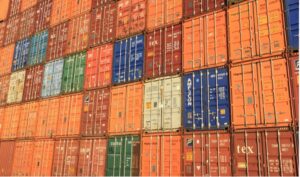Planning to ship your goods to the Caribbean? Navigating the complex world of freight forwarding can be a daunting task, especially when it comes to finding the best Caribbean freight forwarder. With so many options to choose from, it’s crucial to partner with a reliable and efficient company that can handle your cargo with utmost care and professionalism. Whether you’re shipping personal belongings, commercial goods, or industrial equipment, selecting the right freight forwarder can make all the difference in ensuring a smooth and hassle-free shipping experience. In this guide, we’ll walk you through the key factors to consider when choosing a Caribbean freight forwarder, including their experience, network, reputation, and customer service. Get ready to set sail with confidence as we help you find the perfect partner to navigate the seas and deliver your cargo safely to its destination in the Caribbean.
Understanding the role of a freight forwarder

When it comes to international shipping, a freight forwarder plays a vital role in streamlining the logistics process. They act as intermediaries between the shipper and various transportation services, ensuring that your cargo is transported from point A to point B efficiently and cost-effectively. Freight forwarders handle a range of tasks, including documentation, customs clearance, cargo insurance, and transportation coordination. Their expertise and knowledge in navigating the intricacies of international trade make them an essential partner for businesses and individuals alike.
Choosing the right freight forwarder for Caribbean shipping requires a thorough understanding of their responsibilities and capabilities. It’s important to assess how well they can handle the specific requirements of shipping to the Caribbean, such as dealing with multiple ports and understanding the local regulations. A reliable freight forwarder will have extensive experience in Caribbean shipping and a comprehensive understanding of the unique challenges that may arise.
Factors to consider when selecting a Caribbean freight forwarder

Selecting the best Caribbean freight forwarder requires careful consideration of several key factors. These factors will help you determine their suitability for your specific shipping needs and ensure a smooth and successful shipping experience. Let’s take a closer look at each of these factors:
Researching and vetting potential freight forwarders
Before committing to a freight forwarder, it’s essential to conduct thorough research and vetting. Start by compiling a list of potential candidates based on recommendations from trusted sources, online reviews, and industry associations. Look for freight forwarders that specialize in Caribbean shipping and have a proven track record of success. Once you have a shortlist, reach out to each freight forwarder to gather more information about their services, capabilities, and pricing. Be sure to ask for references and follow up with them to gain insights into their experience working with the freight forwarder.
Evaluating the services and capabilities of freight forwarders
When evaluating potential freight forwarders, it’s important to assess their range of services and capabilities. Consider the specific needs of your shipment, such as the type of goods, volume, and any special handling requirements. Look for freight forwarders that offer a comprehensive suite of services, including customs brokerage, warehousing, and distribution. Additionally, inquire about their technology infrastructure and whether they provide online tracking systems or real-time visibility into your shipment. A freight forwarder with advanced technology can provide greater transparency and efficiency throughout the shipping process.
Assessing the experience and reputation of freight forwarders
Experience and reputation are critical factors when selecting a Caribbean freight forwarder. Look for companies with a long-standing presence in the industry and a proven track record of successfully shipping goods to the Caribbean. A freight forwarder with extensive experience navigating the region will have established relationships with local customs officials, port authorities, and other relevant parties. This can significantly streamline the shipping process and help avoid delays or complications. Additionally, consider their reputation within the industry and their ability to provide excellent customer service. Look for any certifications or affiliations that demonstrate their commitment to quality and professionalism.
Understanding pricing and cost considerations

While cost should not be the sole deciding factor, it’s important to understand the pricing and cost considerations associated with Caribbean shipping. Freight forwarders typically charge based on factors such as the weight, volume, and destination of the shipment, as well as any additional services required. Obtain detailed quotes from multiple freight forwarders and compare them based on the services provided and the level of customer support offered. Be wary of extremely low prices, as they may indicate subpar service or hidden fees. Consider the overall value provided by the freight forwarder, including their ability to handle your shipment efficiently, minimize delays, and provide reliable customer support.
The role of technology in freight forwarding

In today’s digital age, technology plays a crucial role in the freight forwarding industry. Look for freight forwarders that leverage technology to enhance their services and provide a seamless shipping experience. Advanced online platforms and tracking systems can provide real-time visibility into your shipment, allowing you to monitor its progress and receive regular updates. Additionally, technology-driven customs clearance processes can help expedite the release of your cargo and minimize potential delays. A freight forwarder that invests in technology demonstrates their commitment to innovation and efficiency.
Questions to ask potential freight forwarders

When vetting potential freight forwarders, it’s important to ask the right questions to gather relevant information. Here are some key questions to consider:
1. How long have you been operating in the Caribbean?
2. Can you provide references from clients who have shipped similar goods to the Caribbean?
3. What technology platforms do you use to track shipments and provide real-time updates?
4. How do you handle customs clearance and ensure compliance with local regulations?
5. What measures do you have in place to handle potential delays or disruptions?
6. Do you offer any additional services, such as warehousing or distribution?
7. How do you handle customer inquiries and provide support throughout the shipping process?
Asking these questions will help you assess the capabilities, experience, and customer service of potential freight forwarders.
Making the final decision and establishing a partnership
Once you have thoroughly researched and vetted potential freight forwarders, it’s time to make the final decision and establish a partnership. Consider all the factors discussed above, including their experience, capabilities, reputation, and pricing. It’s important to choose a freight forwarder that aligns with your specific shipping needs and can provide the level of service and support you require. Establish clear communication channels and expectations with the freight forwarder to ensure a smooth and successful partnership. Regularly evaluate their performance and address any concerns or issues that may arise.
Conclusion
Choosing the best Caribbean freight forwarder is a crucial step in ensuring a smooth and hassle-free shipping experience. By understanding the role of a freight forwarder, researching and vetting potential candidates, assessing their services and capabilities, considering their experience and reputation, understanding pricing and cost considerations, and embracing technology, you can make an informed decision. Remember to ask the right questions and establish clear communication channels to establish a strong partnership. With the right Caribbean freight forwarder by your side, you can navigate the seas confidently and deliver your cargo safely to its destination in the Caribbean.





